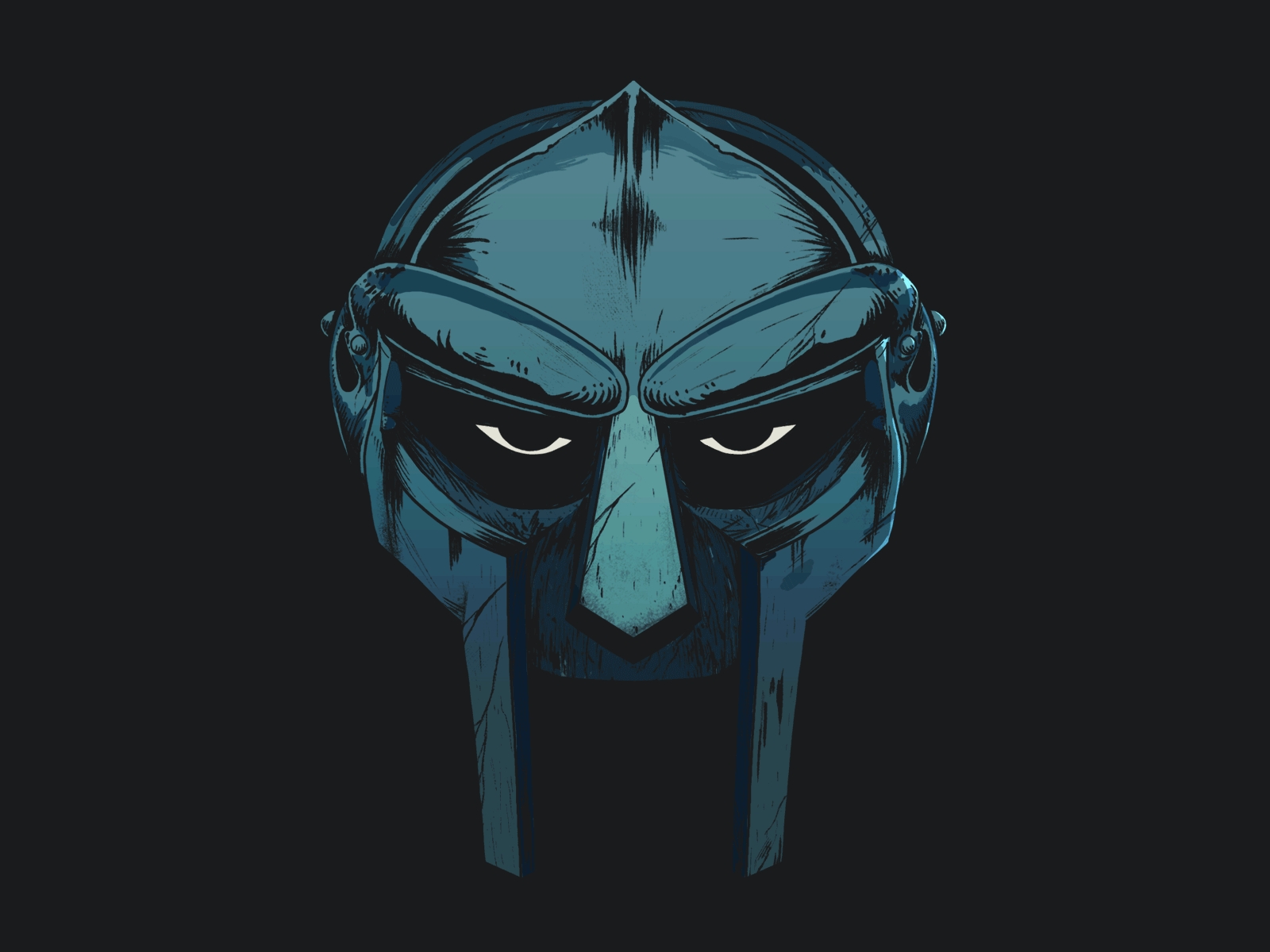
The Iron Mask by kellen manning
what i learned from MF DOOM
I knew what I was going to write about next. I was ready. I even had the draft saved in a folder outside of the vortex folder on my desktop that’s named desktop, that just contains folder versions of my old cluttered desktops that got too unwieldy to organize. And then, I saw MF DOOM died, and I was shocked. Not just because someone died, but more because in my mind, DOOM was a myth. DOOM was an idea. DOOM was one of those American tall tales01 Even though he wasn't technically American like John Henry and Paul Bunyan and this was too human of a thing to happen to someone so large. Another thing that caught me off-guard was in that moment I finally realized everything I learned from him over the last 17 years.
For those of you trying to figure out who MF DOOM is/was, I guess I should start with the most simplistic version of him. He was a rapper and his real name was Daniel Dumille. He started rapping in the early 90s under the name Zeb Love X in a group called KMD. After his brother died, KMD disbanded and Zeb disappeared. Five years later he re-emerged donning an iron mask and was something completely different. MF DOOM was born, and nothing would be the same.

Now that the simple version is out of the way, it’s time to mention what he really was. See, DOOM was a villain. A better way to put that is that Doom is the villain. That’s not to say he was a bad guy in the classical sense. No, DOOM was the villain because of how different he was. How he rapped was different, the beats he made were different, and the characters he played were different. To put it another way, everyone went right and DOOM went left with such force that it pulled people with him.
And yes, when I say characters, I mean he had multiple alter egos, all equipped with backstories that served as foundations for his work. Besides DOOM, there’s the Viktor Vaughn the Vaudeville Villain, there’s King Geedorah of the group Monsta Czar Island, and there’s Metal Fingers. Throw in his Madvillain collaboration with Madlib and DangerDOOM with DangerMouse and you realize this dude created an entire connected universe where he played every single character.
The one thing they all had in common was how unapologetically unique they were. Nothing he ever did was based on what other people were doing, or even what people liked at the time. He stayed true to what he believed, created a brand-new lane, and was ready to accept whatever came next. It sounds simple, and maybe even cliché, but honestly, it’s so difficult to do. I mean just look at influencer culture or content creator culture…actually even look at college admissions culture and you’ll find it. So many people are so focused on what they think others expect or want to see, that they lose who they are, making everything and everyone feel…well…the same. And that’s sad, because all trends change and are destined to be forgotten. To sacrifice who you are at the feet of something so paper thin just seems…well…sad. DOOM taught us that being different is okay. Even if you initially come across as the villain,02 I mean, not a literal villain. Still be kind. it’s okay as long as you are staying true to who you are.
And, with that, we are at the end of this blog and I still want those who don’t know much about Doom, to learn more if they’re interested. Here’s an article that Ta-Nehisi Coates wrote about him in 2009 and here’s a 60-minute set that the AV Club created three years ago.
Oh and here’s a gigantic 220+ song playlist that I just threw together without curating. But, honestly just go listen to Madvillainy, MM…Food, Vaudeville Villain by Viktor Vaughn, or Operation: Doomsday.
Until next time…
- Even though he wasn't technically American back to text ↑
- I mean, not a literal villain. Still be kind. back to text ↑